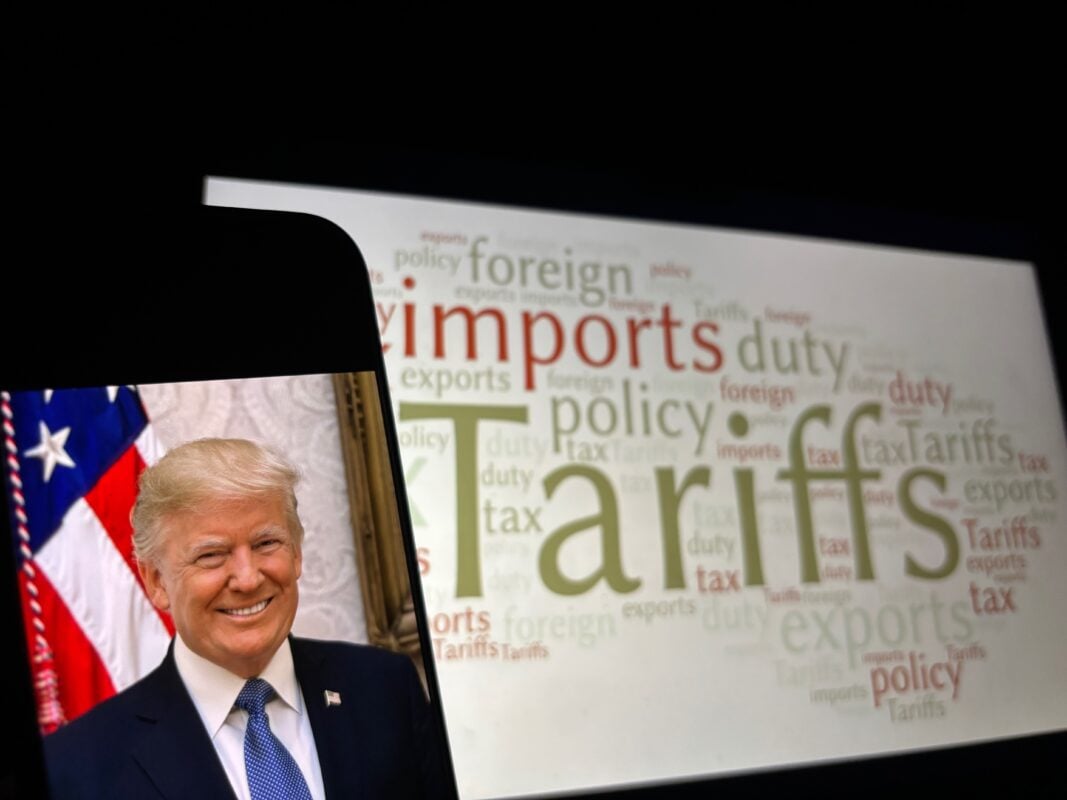TLDRs;
Contents
- France and Germany insist EU digital regulations are sovereign decisions, not subject to U.S. pressure or retaliation.
- Trump has threatened tariffs, citing $97.6 billion in costs for U.S. companies due to EU rules and taxes.
- The European Commission rejects claims of bias, stressing DMA and DSA apply equally to all tech firms.
- A deeper ideological clash drives the dispute, with the EU’s proactive model contrasting U.S. market-based oversight.
As tensions rise between Washington and Brussels, European leaders have firmly rejected former U.S. President Donald Trump’s threats of tariffs in response to the European Union’s digital market regulations.
France and Germany defended the EU’s authority to regulate digital services, signaling that the bloc will not yield to outside pressure when it comes to shaping the rules governing its technology landscape.
Trump recently warned that the U.S. might impose tariffs on European countries with digital taxes or regulations that, in his view, unfairly harm American technology companies. The warning has reignited transatlantic friction over the EU’s landmark laws, including the Digital Markets Act (DMA) and the Digital Services Act (DSA), which impose strict requirements on large online platforms.
Macron and Merz Push Back on U.S. Pressure
French President Emmanuel Macron stated that Europe would retaliate if the United States were to follow through with its tariff threats.
He underscored that taxation and regulation decisions are determined by European institutions and national parliaments, not by external actors.
“We will not allow our sovereignty to be dictated from abroad,” Macron declared, framing the dispute as a matter of democratic independence.
German Chancellor Friedrich Merz echoed Macron’s position, stressing that Europe’s digital regulations are built around the principle of sovereignty and will not be adjusted to satisfy foreign demands. Merz argued that the EU must prioritize fair competition and consumer protection, regardless of pushback from Washington.
EU Rejects Claims of Targeting American Firms
The European Commission dismissed claims that its digital legislation unfairly targets U.S. tech companies, insisting that the rules apply equally to all firms operating within the EU’s single market.
However, the reality is that American corporations dominate the list of companies designated as “gatekeepers” under the DMA. Google, Amazon, Apple, Meta, and Microsoft all fall under the EU’s toughest new compliance requirements.
By contrast, very few European firms face the same obligations, fueling U.S. complaints that the regulatory framework disproportionately burdens American enterprises.
Economic Stakes Reach Nearly $100 Billion
Industry estimates highlight the high costs U.S. companies face under Europe’s regulatory regime. According to analysts, compliance with EU rules, combined with revenue losses and penalties, could amount to $97.6 billion annually for American tech firms.
Further compounding the strain, several European countries, including France, Italy, Spain, and Austria, collected approximately $1.5 billion in Digital Services Taxes (DSTs) in 2023, primarily from U.S.-based corporations.
For Washington, this financial pressure provides a strong rationale for retaliation, explaining why Trump has repeatedly floated tariffs as a countermeasure.
Philosophical Divide Fuels Policy Clash
Beyond economics, the dispute reflects a deeper ideological divide. Europe’s regulatory approach emphasizes “ex-ante” oversight, where rules are imposed before anti-competitive behavior occurs. The United States, on the other hand, traditionally favors “ex-post” enforcement, addressing abuses only after they arise through litigation.
This clash is rooted in broader philosophical traditions: Europe’s ordoliberal focus on strong state intervention to safeguard market fairness versus America’s preference for market-driven solutions underpinned by neoclassical economics.


